History
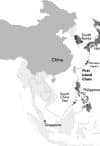
John Bellamy Foster and Brett Clark introduce this summer’s special issue on “Imperialism in the Indo-Pacific,” exploring how the super-region came to be conceptualized among geopolitical strategists and its present-day role in U.S military strategy. “The United States,” they write, “facing the demise of its global hegemonic imperialism, is not only preparing for a Third World War; it is actively provoking it.” | more…

Cheng Enfu and Li Jing survey the current economic, diplomatic, and security status quo between China and the United States, with an eye toward future policy decisions that could help strengthen China’s position as a bulwark against the imperial hegemon. | more…

“In the Western imagination,” the Qiao Collective writes, “Taiwan exists as little more than a staging ground for ideological war with the People’s Republic of China.” However, this not only obscures the deep historical and cultural ties between Taiwan and the mainland, but functions as a justification for U.S. imperial intervention in the South China Sea. | more…
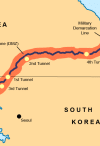
Tim Beal dives into the critical role that the Korean Peninsula plays in U.S. strategy for maintaining power in the Indo-Pacific. The United States, he concludes, has long used its position on the peninsula to advance U.S. interests in the Pacific theater, aiming its most recent efforts against the rise of China and Russia. | more…
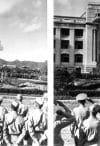
This article will be released in full online July 26, 2023.
In this forcefully argued piece, Dae-Han Song presents an overview of the past few decades of U.S. policy on the Korean Peninsula and its continued refusal to engage meaningfully with any peace process between the artificially separated North and South. The article ends with a series of demands that look toward a future of peace on the peninsula. | more…
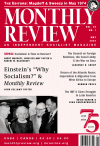
The MR editors revisit the words of Monthly Review editors Harry Magdoff and Paul M. Sweezy, writing in the twenty-fifth-year anniversary issue. Writing on the innate contradictions plaguing the capitalist system, the editors in 1974 noted that the ecological limitations of capital accumulation was “unsolvable” under capitalism, thus setting the stage for the magazine’s continued exploration of ecosocialism as humanity’s future. | more…

For our seventy-fifth anniversary issue, John Bellamy Foster revisits the legacy of Albert Einstein and his deep connections to Monthly Review, including his authorship of the article “Why Socialism?,” published in our first-ever issue in May 1949. Through historical documents and the famed physicist’s own words, Foster rediscovers Einstein’s commitment to socialism in both word and deed, and his collegial ties to MR‘s founding editors. | more…

Matthew Sharpe discusses Aymeric Monville’s Misère du nietzschéisme de gauche (The Misery of Left Nietzscheanism), an exploration of how Nietzsche’s popularity on the left co-opts truly radical energy in favor of authoritarianism and elitism. “If Monville is right,” Sharpe concludes, “Nietzcheanism has acted as a kind of ideological ‘useful idiot.’” | more…

According to most Western commentators, North Korea is an “enigma” plagued by “irrational” leadership, poverty, and pervasive food shortages. Zhun Xu charts the evolution of North Korean industrial agriculture and the country’s efforts to feed its population from the Soviet era up until today. What, Xu asks, can we learn from the country’s efforts to industrialize its agricultural sector, and what do they tell us about the future of agriculture under socialism? | more…

Christian Noakes tells the story of the struggle to liberate jazz from the exploitative, white-controlled music industry in 1950s and beyond. Recounting the seminal events of the movement and backlash from white civil society, Noakes reveals a legacy of Black cultural autonomy and resistance led by such jazz legends as Charles Mingus, Max Roach, Eric Dolphy, Bill Dixon, and others. | more…

This lyrical vignette from the recently departed Paul Burkett is the author’s final, posthumously published piece for Monthly Review. In it, the eminent ecological economist and jazz musician muses on the nature of creativity, technology, and the corporatization of music—and the struggle to decommodify it, freeing musicians and their craft from the confines of capitalism. | more…
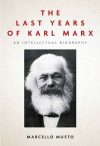
Mauricio Betancourt reviews Marcello Musto’s The Last Years of Karl Marx. In the book, Betancourt finds a detailed portrait of Marx’s rarely examined later years, revealing a man who, despite personal tragedy and failing health, remained a vigorous intellectual and scholar through the end of his life. | more…











